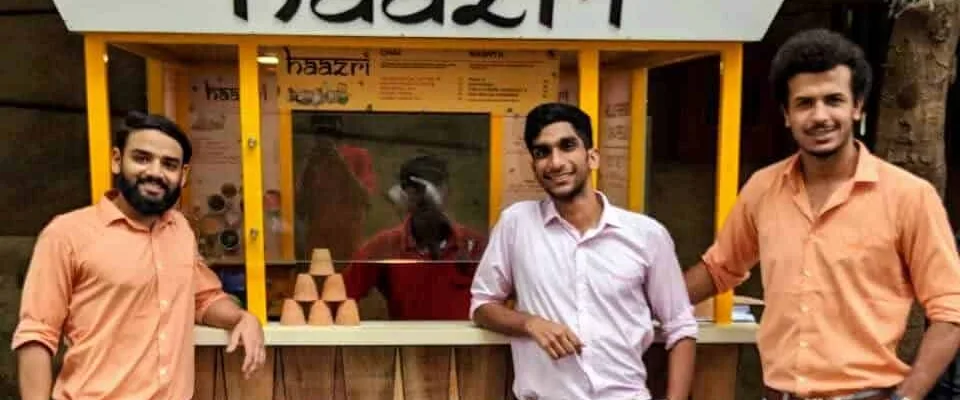Dhruv Agarwal, Founder of Chotta Haazri Foods Private Limited seconds the No Sir No Madam culture. He has completed his schooling from the prestigious Doon School in Dehradun. After his BBA from NMIMS, Mumbai, Dhruv started his company — ChottaHaazri. The company provides an alternative to coffee vending machines and the road side vendors for selling the staple Indian beverage ‘chai’.
At present, they have established five outlets in Mumbai and plan to expand up to 20 outlets within the next 18 months.
Dhruv believes that problems arise when respect is combined with salutation. He doesn’t let such a culture affect the work in his company. His core team consists of two other partners who are his friends. Hence, there is no need to formally address each other. He even encourages the other team members to address him by his name. Thus, it makes it easier for everyone to approach anyone in the company without any hesitation.
Dhruv shares the positive experience he has had during his school pertaining to the salutation-free culture. The students in his school regarded their teacher by the initials of their name which created a comfortable bond, and students did not shy away from approaching any teacher.
Dhruv Agarwal thinks that when people communicate with each other on an equal ground, it opens a sea of knowledge.
At Haazri, Dhruv constantly implements new ideas to breach the formality between the members. They even use nick names in the office to create a friendly environment. However, while working with other companies, he saw the other side of the coin.
For business collaborations, he has had to communicate with administrators and office managers in both public and private sectors. Therefore, unfortunately, bowing to fearful action and/or demand, he has had to address them as Sir or Madam.
However, Dhruv does not have to deal with government authorities constantly as most of the work can be done digitally nowadays. Nonetheless, he is aware of this obvious screen that stands in between the civilians and authority. Although the Indian ethnicity teaches us to respect our elders, Dhruv does not consider the Sir/Madam terminology to be necessary for that purpose.
Dhruv Agarwal opines that there is excessive diplomacy associated with ‘Sir and Madam based communication’. There is a fear in the minds of people as power lies in the hands of authority. Dhruv states that education is the key to remove this fear and discrimination. Half knowledge is harmful and creates biased perceptions about things.
Hence, he considers it necessary that everyone gets complete and proper education. He says that people belonging to the labor class needs to get educated and comfortable with these salutations. Dhruv points out that their psyches have been manipulated by the Sir/Madam courtesy. People blindly follow it without comprehending the meaning behind.
However, Dhruv is optimistic about the changing norms in the society. He even thinks that modern workplace relationships are far more informal. It is the executives and authority figures who can create a non- biased environment. He firmly believes that “it is all about working hard and getting your reward.”
Dhruv admires the No Sir No Madam cause. He suggests that every organizations should have a vision of equality and humanity. This vision will bring massive change in the society. He recommends the No Sir No Madam initiative to reach the Government for widespread promotion.
In conclusion, Dhruv states that the primary education system of the country needs to evolve and introduce change at the root of the system. Transformation is crucial for understanding the value of people and their work irrespective of their age or position in the organization. A free developing society cannot and should not be built upon a wrongly preconceived idea of mutual respect.







Add comment